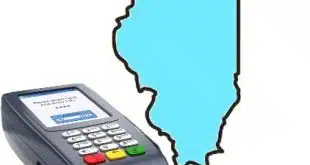The nascent market for electronic transactions in self-service machines should get a sizable boost from a Federal Reserve rule change set to go into effect Aug. 6, an industry observer notes. The rule change could also foster the development of contactless transactions at these machines, laying the groundwork for payments via mobile phone for a wide array of small-value items, says Randy Vanderhoof, executive director of the Smart Card Alliance, a Princeton Junction, N.J.-based trade group. After months of consideration (Digital Transactions News, Nov. 29, 2006) the Fed is modifying a long-standing requirement in Regulation E that consumers must receive a receipt for all electronic funds transfers at what the Fed calls electronic terminals. Under the change, signature- and PIN-secured debit card transactions of $15 or less will no longer require a receipt. This includes all so-called micropayments, generally thought of as payments at or under $5, as well as most transactions at venues such as parking spaces, commuter trains, and self-service devices. But unattended devices, and in particular vending machines, are likely to benefit the most, Vanderhoof says, since machine operators will no longer need to equip the devices with costly receipt printers. “Vending is the real winner here,” he says. “Cards in vending machines have a huge growth potential.” Currently, only about $552 million out of $46 billion in annual vending-machine transactions are performed on cards, according to Digital Transactions estimates. The receipt requirement was hindering the growth of electronic payments at these devices not only because of the cost of the printers themselves but also because of maintenance costs and the expense of ancillary items, such as paper. “That was the barrier, really, to [electronic payments] at the unattended point of sale,” says Vanderhoof. “The cost to print a receipt was not realistic.” He says vending should now benefit from the overall shift in the economy from cash to cards, and in particular can now begin to exploit the introduction of contactless cards, which rely on radio waves rather than magnetic stripes to transmit account data. On the other hand, had the receipt mandate remained in place, vending would have suffered as more and more customers carry less and less cash, while preferring to use debit cards for everyday purchases. Such consumers, he says, are responding to the increasing number of traditionally cash-dependent establishments accepting debit cards, Vanderhoof argues. “As people become more comfortable using cards in fast food, they'll carry less and less cash,” he says. “That downside risk [for vending] was going to increase over time.” At the same time, however, the rule change doesn't touch on another impediment to card transactions in vending: the cost of interchange, which consumes a significant portion of small-value sales. Still, the elimination of the receipt requirement opens up another possibility: the automation of high-margin sales that consumers may now be willing to put on debit cards. Vending operators might start selling store owners on the idea of using machines to dispense somewhat more expensive, highly portable items that are now kept behind a counter and require the attention of a clerk, Vanderhoof says. Office-supply stores, for example, might want to automate the sale of high-traffic, high-margin items like CDs and memory sticks, he suggests. Also, to the extent that vending machines adopt contactless payment, they will be ripe for payments via mobile phones equipped with near-field communication chips, Vanderhoof says. These chips link mobile phones with contactless readers at very short range. Currently, very few phones are so equipped, but both MasterCard Worldwide and Visa USA are conducting pilots of NFC technology in the U.S. “Vending and mobile phones are a really good match,” he says. “Being able to tie in a mobile phone will be a good marriage between vending and mobile telephony.”
Check Also
Illinois’s Interchange Law Will Distort Card Payment Economics, a Report Says
If the Illinois Interchange Fee Prohibition Act survives the legal challenges it faces, the law …





